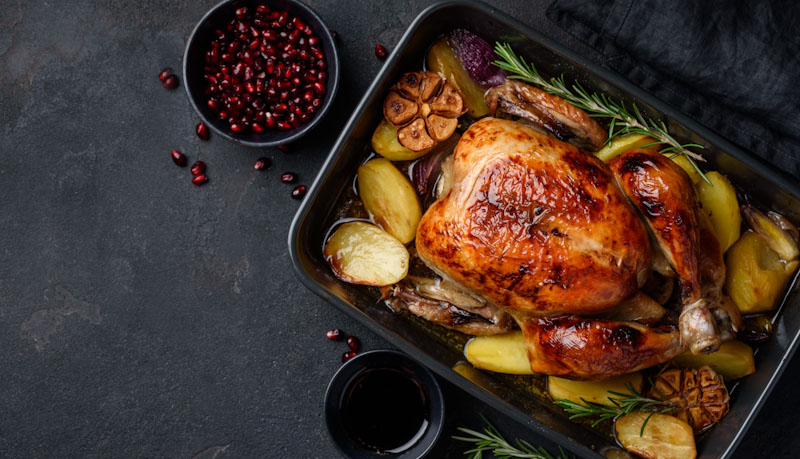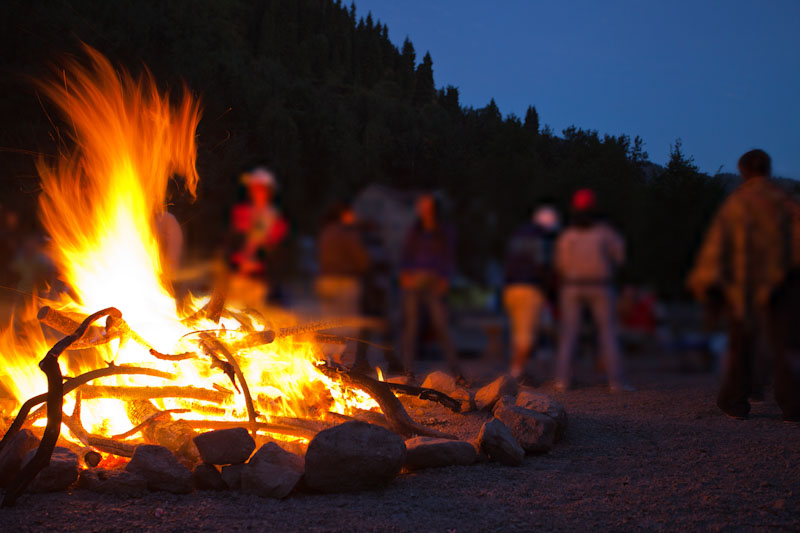Securing your food supply should be among your top priorities as a survivalist. National emergencies like the pandemic, or natural ones such as wildfires show that federal food supplies can run low quickly and that citizens will need to lean on their own stock to survive.
You’ll need to know to provide more than canned food and soups if you want to thrive in an emergency, too. Being able to plate up nutritionally balanced meals for your family will improve your overall health, increase your resilience, and make dinner time that much more enjoyable.
However, you can’t exactly pop to the store to pick up missing ingredients in a survival scenario. This means you must have a deep knowledge of nutrition to plant the correct crops, store the right types of food, and put together healthy, resource-friendly meals for your family.
Nutritionist Training
Nutrition is a field of science that people dedicate their entire lives to. However, if you’re a survivalist, you don’t have time to pursue a doctorate in biology and nutrition. Fortunately, you can still become a qualified nutritionist without a degree. If the idea of pursuing further education opportunities sounds exciting to you, consider pursuing qualifications offered by groups like:
- NESTA Certified Sports Nutrition Specialist;
- ISSA Nutritionist;
- AFPA Nutritionist;
- NASM Nutrition and Fitness Coach.
These programs are accredited and reliable. They’ll give you a deeper appreciation for the role of nutrition in our lives and help you make better decisions when deciding on meal plans. Some of these programs will improve your understanding of holistic health, too, as programs like the ISSA Nutritionist course provide further information on important lifestyle choices that will impact your health.
As a survivalist, your approach to diet will differ from most folks who pursue nutrition qualifications. You won’t just need to learn what to eat; you’ll need to learn how to source it. This is crucial, as there’s no use in knowing that blueberries are good for heart health if you can’t find them. While on your nutrition course, consider keeping a separate document that records key details like growing seasons, soil quality requirements, and local wild fruits that you can forage for yourself. This will increase your independence and help you put your nutrition education to good use.
Foods for Cognitive Health
A well-balanced diet isn’t just important for your physical health. Eating nutritious meals can improve your cognitive function and help you stay mentally sharp. This is key in a survival scenario, as you’ll have to make some tough calls when an emergency occurs. Increase your mental sharpness by choosing foods that improve cognition, like:
- Leafy Greens: Kales, Broccoli, and spinach are rich in nutrients like lutein and beta-carotene. They also contain Vitamin K, which can help prevent age-related cognitive decline.
- Berries: As well as being a tasty treat, berries are a great source of fiber and anthocyanins. This protects the brain from inflammation and slows down the process of cognitive decline.
- Fatty Fish: Salmon, tuna, and sardines are great sources of omega-3 polyunsaturated fatty acids and vitamin B12. These fats are crucial for healthy brain development and function.
- Whole Grains: Quinoa, Corn, and Oatmeal are high in manganese, iron, and potassium. These nutrients promote brain function and give you slow-releasing energy throughout the day to fuel your activities.
Other whole foods, like eggs, seeds, and nuts are also great for cognitive function. However, you will want to avoid processed foods, refined sugars, and artificial additives in your diet. This can be tricky if you’re relying on cheap canned foods that contain lots of chemicals and are highly processed. Instead of leaning heavily on these “easy” foods, try to can your own food for sustenance well into the winter months.
Foods for Recovery
Survival prep and maintenance can involve a lot of physical labor. This can come as a shock if you’re used to working at a desk with minimal physical demands. Having to chop wood, maintain a yard, or evacuate your hometown can put a real strain on your physical health.
A balanced, nutritious diet can help you recover from the stress and physical strain associated with a survival scenario. The right diet can even improve your physical health and help you become stronger and fitter than ever before. This is crucial if you want to survive in the long term, as you’ll probably need to improve your physical fitness to overcome the challenges you’ll face.
Get the ball rolling by increasing your protein intake. The typical RDA of protein for adults per day is currently 0.8 grams per kilogram of body weight. However, as an active adult, you’ll likely need to increase this to around 1.2 to 2 grams of protein per kilogram of body weight. This increases the amount of protein available for growth and recovery and ensures that your body always has the tools it needs to recover properly.
You’ll also need to track fat and carbohydrate intake. These macronutrients are essential for your overall health and balancing them correctly is key if you want to maintain your health and remain energized in an emergency. Currently, the Institute of Medicine of the National Academies recommends a macro-split around:
- 45–65% of your calories from carbs;
- 20–35% of your calories from fats;
- 10–35% of your calories from proteins.
This macronutrient split can help you keep your calories up, too. This is key in an emergency, as it’s easy to overlook the importance of nutrition when in a high-stress environment. Take your daily intake seriously and make adjustments if you’re feeling depleted or are gaining unwanted weight.
Nutrient Dense Meals
Understanding the nutritional properties of food is important. However, you’ll need to be able to bring it all together in the form of nutrient-dense, resource-friendly meals if you want to improve your longevity as a survivalist. Healthy, palatable meals should be the core of your diet as a survivalist. These meals should not take hours to prepare, either, as you’ll need to spend most of your time navigating the new world in the wake of a disaster.
Start by establishing a breakfast meal that is nutrient-dense and palatable for the whole family Foods like oats, fruit, and milk are great for this. If you find that you’re struggling to hit your macros, consider adding whey mixes to your breakfast for a protein boost early in the morning.
You’ll also need an easily replicable lunch go-to meal. Ideally, this should be a carb-dense meal that features pasta or rice. This is because you are most active during the daylight hours and need quick-burning fuel to get the most out of your workday. Top up your calories with some fruits and nuts to round out your macros and hit your daily targets.
Most people tend to eat their biggest meal in the evening. While this may make sense from a practical standpoint, air on the side of caution if you find that large meals cause acid reflux when you lie down. You’ll need a full 7 – 9 hours of restful sleep per night if you want to recover properly and should adjust your meals to help you drift off more easily.
Consider snacking if you feel that you need a boost throughout the day. Snacks can help you hit your macro targets and keep your calories up without interrupting your digestion. Examples of nutrient-dense, whole-food snacks include:
- Jerky;
- Turkey roll-ups;
- Hard-boiled eggs;
- Cheeses;
- Almonds;
- Baked tofu.
These snacks are energy-rich and contain plenty of protein. They’re the perfect fuel when you’re working on a physically demanding task or are hiking for an extended period. Be sure to drink plenty of water while snacking, too, as this can improve digestion and will keep you hydrated throughout the day.
Plants with Medical Purposes
In a survival scenario, professional medical assistance may be limited. In many scenarios, hospitals and doctor’s offices will be flooded with people experiencing acute illnesses and emergencies. As such, it’s a good idea to learn more about nutrient-dense plants with medicinal properties like:
- Red Clover: can be used to tackle swelling and soreness due to its anti-inflammatory properties.
- Bee balm: Bee Balm looks a little weedy, but is a nutrient-dense medicinal plant that can be used as an antiseptic and anesthetic.
- All-Heal: This aptly-named plant, also known as carpenter’s herb, is a commonly used medicinal flower that has antibiotic, antiseptic, antioxidant, and anti-inflammatory powers.
These flowers and herbs pack a real punch and can help you overcome common colds and illnesses. Some herbs, like bee balm, can be used to proactively improve your health if they are regularly imbibed in the form of tea. However, if you do decide to start using medicinal herbs, speak to your doctor first. Some herbs are powerful enough to mess with any medicine you’re currently taking and should be used with caution.
Conclusion
Eating the right foods at the right time can improve your readiness and enhance your health. This is key during a survival scenario, as you’ll need to lean on your nutritional knowledge in an emergency. A good understanding of medicinal foods can help you fight off illness and infections, too. Just be sure to keep stock of your food supplies at all times and consider canning your homegrown produce to keep your larder stocked with nutrient-dense ingredients year-round.











Tricia | March 11, 2024
|
This article was helpful in a very generic way.
In a true long term emergency one would not be accessing fresh salmon in the Midwest, tofu, citrus or tropical fruits such as pineapple, mango, coconut etc
Olive oil…not for most of US
It would be helpful to know how many calories would keep you alive, what vitamins you need to get to old age where you might worry about brain function….what a pregnant woman or young children need to produce healthy bodies, prevent birth defects and rickets.
Staying heathy is more than staying alive, but when gardening is seasonal at best for most of USA and foraging is new to most…easy doable would help.
Fresh tips of pine trees, berries from Oregon grape, etc
I dare say many will die if they make it to foraging or the first winter from food poisoning or eating a hard to identify poisonous plant.
People will be thrilled to have a can of food…..even IF fresh is better.